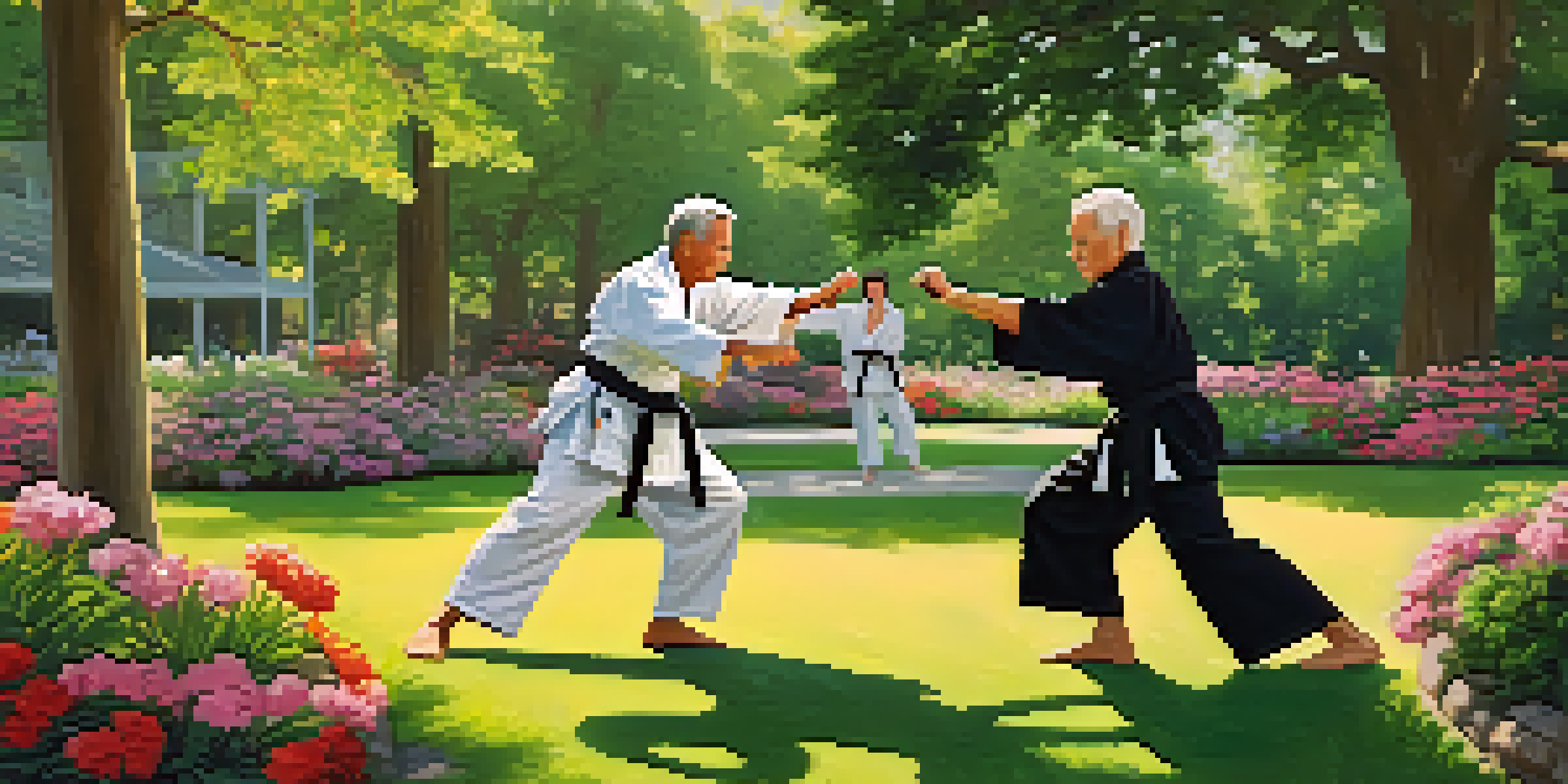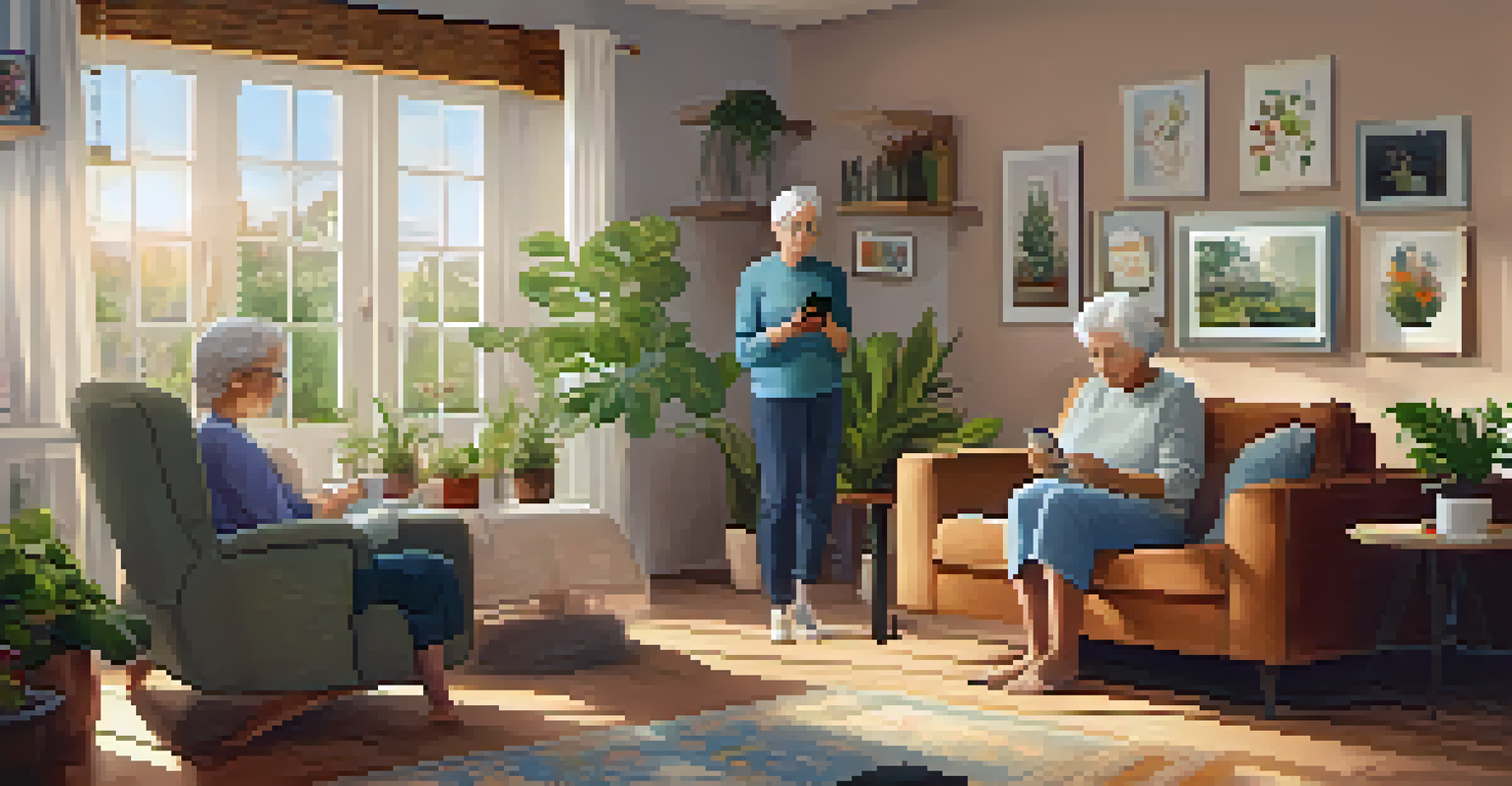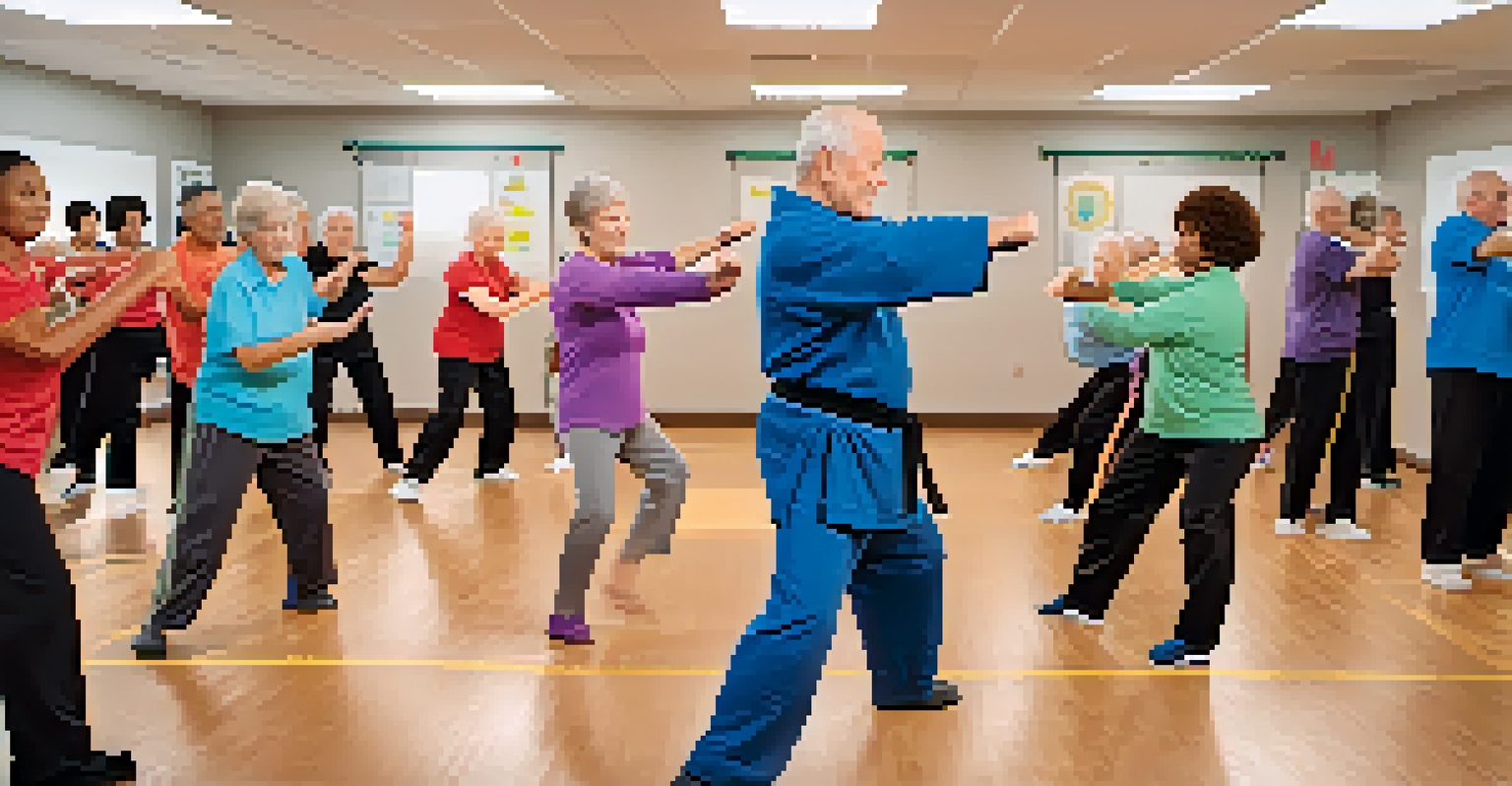Self Defense for Seniors: Adapting Techniques for Safety

Understanding the Need for Self-Defense in Seniors
As we age, our safety concerns can shift, making self-defense increasingly important. Seniors may face unique risks, from physical vulnerabilities to potential scams. Understanding these threats is the first step in empowering oneself to act confidently.
The greatest weapon against stress is our ability to choose one thought over another.
It's not just about physical attacks; it's also about being aware of your surroundings and recognizing potentially dangerous situations. For instance, simple changes in your routine, like avoiding poorly lit areas, can make a significant difference. This awareness allows seniors to take proactive steps to enhance their personal safety.
Moreover, self-defense isn’t solely about physical prowess. It's about mental resilience and the ability to assess situations critically. By understanding the need for self-defense, seniors can foster a mindset that prioritizes safety and confidence in everyday life.
Choosing the Right Self-Defense Techniques for Seniors
When it comes to self-defense, not all techniques are suitable for everyone, especially seniors. It's essential to choose methods that cater to physical abilities and mobility. Gentle techniques that emphasize using an attacker's strength against them can be particularly effective.

For example, techniques from martial arts like Aikido focus on redirecting an opponent's force rather than engaging in direct confrontation. These methods can be easier to learn and apply, making them ideal for seniors who may not have the strength or flexibility of their younger counterparts.
Self-Defense Empowers Seniors
Understanding the need for self-defense helps seniors recognize potential threats and fosters confidence in their ability to respond.
Ultimately, the best techniques are those that build confidence while being adaptable to individual needs. By focusing on what fits best, seniors can develop a personalized self-defense strategy that enhances their safety without overwhelming them.
Physical Conditioning for Improved Self-Defense
Physical conditioning plays a vital role in effective self-defense for seniors. Engaging in regular exercise not only boosts strength and flexibility but also improves overall confidence. Activities like yoga, swimming, or even walking can enhance mobility, making it easier to escape dangerous situations.
Self-defense is not just about defending yourself physically, but also about being aware of your surroundings and taking proactive steps to protect yourself.
Additionally, strength training can help seniors maintain muscle tone and balance, which are crucial for self-defense maneuvers. Simple exercises using resistance bands or light weights can be integrated into daily routines. These small steps can lead to significant improvements in one's ability to defend themselves.
Remember, the goal isn’t to become a martial arts expert but to be fit enough to respond appropriately in a situation. The better conditioned you are, the more prepared you will feel, turning self-defense into a proactive part of everyday life.
Situational Awareness: The First Line of Defense
Situational awareness is an essential skill that goes hand-in-hand with self-defense. It involves being conscious of your surroundings and the people in them. By paying attention to subtle cues, like someone getting too close or an unusual behavior, you can often avoid potential threats before they escalate.
Practicing situational awareness can be as simple as taking a moment to observe your environment when you enter a new place. Are there exits? Are there people acting suspiciously? This awareness can prompt early action, such as leaving an area or calling for help when needed.
Choose Suitable Techniques
Selecting self-defense methods that match seniors' physical abilities enhances their safety and builds confidence.
The key is to stay alert without becoming overly anxious. By fostering a sense of calm awareness, seniors can navigate their environments confidently, reducing their risk of encountering dangerous situations.
Incorporating Technology for Enhanced Safety
In today’s digital age, technology can significantly enhance personal safety for seniors. Devices like smartphones can serve as valuable tools for self-defense, offering features such as emergency contacts and location tracking. Apps that allow users to send distress signals with just a tap can be lifesavers in critical moments.
Additionally, wearable devices like personal alarms or smartwatches can provide peace of mind. These gadgets can alert family members or authorities if a senior feels threatened or in danger. Embracing technology in this way opens up new avenues for safety.
However, it’s essential to ensure that the technology is user-friendly and accessible. Training on how to use these devices effectively can empower seniors to feel more confident in their ability to seek help when needed.
Community Resources for Self-Defense Training
Many communities offer resources tailored to seniors looking to learn self-defense. Local organizations, senior centers, or martial arts studios often host classes specifically designed for older adults. These classes not only teach techniques but also foster a sense of community among participants.
Joining a self-defense class can be a great way to meet new people while learning valuable skills. The supportive environment encourages practice and allows seniors to share experiences and tips with one another. This camaraderie can be as beneficial as the techniques learned.
Mental Preparedness Matters
Cultivating mental readiness through visualization and mindfulness equips seniors to handle stressful situations effectively.
Moreover, some programs might offer free or low-cost sessions, making it accessible for all. Seeking out these community resources is a proactive step towards enhancing personal safety and building confidence.
The Importance of Mental Preparedness in Self-Defense
Mental preparedness is just as crucial as physical readiness when it comes to self-defense. Knowing how to react in a stressful situation can make a world of difference. Visualizing potential scenarios and practicing responses can help build confidence and reduce panic when faced with real threats.
Techniques like mindfulness and meditation can also aid in staying calm under pressure. By training the mind to focus and remain composed, seniors can improve their ability to make quick decisions during emergencies. This mental clarity can be a powerful ally in self-defense situations.

Ultimately, cultivating a mindset that embraces safety and preparedness empowers seniors to face challenges head-on. By prioritizing both mental and physical readiness, they can navigate the world with greater confidence and security.